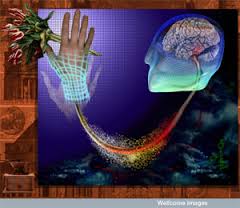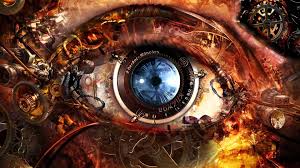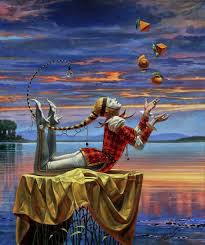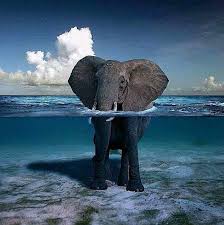I’d say that both the creation and evolution models suffer from logical and emotional sloppiness, and that neither one presents a reasonable view of man’s or woman’s origins. Both concepts seem equally implausible when we think of them with any objectivity, and neither can be proven, of course. They ultimately rest upon the faith of the believer.

We cannot prove scientifically that our world was created by a god who set in into motion, but remained outside of its dominion. Nor can we prove scientifically that the creation of the world was the result of a chance occurrence — so we will not be able to prove what I am going to tell you either. Not in usual terms.
I hope however to present, along with my explanations, certain hints and clues that will try to arouse within our own consciousnesses memories of events with which our own inner psyches were intimately involved as the world was formed — and though these may appear to be past events, they are even now occurring.

Before the beginning of the universe, we will postulate the existence of an omnipotent, creative source. We will hope to show that this divine subjectivity is as present in the universe. I refer to this original subjectivity as All That Is. I am making an attempt to verbalize concepts that almost defy the edges of the intellect, unless that intellect is thoroughly reinforced by the intuition’s strength. So you will need to use your mind and your own intuitions as you read this blog.
All that is, before the beginning contained within itself the infinite thrust of all possible creations. All That Is possessed creativity of such magnificence that its slightest imaginings, dreams, thoughts, feelings or moods attained a kind of reality, a vividness, an intensity, that almost demanded freedom. Freedom from what? Freedom to do what? Freedom to be what?

The experience, the subjective universe, the “mind” of All That Is, was so brilliant, so distinct, that All That Is almost became lost, mentally wandering within this ever-flourishing, ever-growing interior landscape. Each thought, feeling, dream, or mood was itself indelibly marked with all of the attributes of this infinite subjectivity. Each glowed and quivered with its own creativity, its own desire to create as it had been created.
Before the beginning there existed an interior universe that had no beginning or ending, for I am using the term “before the beginning” to make matters easier for the reader to assimilate. The same infinite interior universe exists now, for example.

All That Is contained within itself the knowledge of all existences, with their infinite probabilities, and “as soon as” All That Is imagined those numberless circumstances, they existed in what I will call divine fact.
All that is knew of itself only. It was engrossed with its own subjective experiences, even divinely astonished as its own thoughts and imaginings attained their own vitality, and inherited the creativity of their subjective creator. Those [thoughts and imaginings] began to have a dialogue with their “Maker”

Thoughts of such magnificent vigor began to think their own thoughts — and their thoughts thought thoughts. As if in divine astonishment and surprise, All That Is began to listen, and began to respond to these “generations” of thoughts and dreams, for thoughts and dreams related to each other also. There was no time, so all of this “was happening” simultaneously. The order of events is being simplified. In the meantime, then in our terms. All That Is spontaneously thought new thoughts and dreamed new dreams, and became involved in new imaginings of interweaving and interrelating thoughts and dreams that “already” existed.
So beside this spontaneous creation, this simultaneous “stream” of divine rousing. All That Is began to watch the interactions that occurred among his own subjective progeny. He listened, began to respond and to answer a thought or a dream. He began to purposefully bring about those mental conditions that were requested by these generations of mental progeny. If he had been lonely before, he was no longer.

Our language cause some difficulty here, so please accept the pronoun “he” as innocuously as possible. “It” sounds too neutral for my purpose, and I want to reserve the pronoun “she” for later differentiations. In basic terms, of course, All That Is is quite beyond any designations having to do with anyone species or sex. All That Is, then, began to feel a growing sense of pressure as it realized that its own ever-multiplying thoughts and dreams themselves yearned to enjoy those greater gifts of creativity with which they were innately endowed.
It is very difficult to try to assign anything like human motivation to All That Is. I can only say that it is possessed by “the need” to lovingly create from its own being; to lovingly transform its own reality in such a way that each most slight probable consciousness can come to be; and with the need to see that any and all possible orchestrations of consciousness have the chance to emerge, to perceive and to love.

We will later in future blogs discuss fuller connotations of the word “love” as it is meant here, but this blog is a kind of outline of other material to come.
All That Is, then, became aware of a kind of creative tumult as each of its superlative thoughts and dreams, moods and feelings, strained at the very edges of their beings, looking for some then-unknown, undiscovered, as of then unthought-of release. I am saying that this mental progeny included all of the consciousnesses that have ever appeared or will appear upon our earth — all tenderly couched: the first human being, the first insect — each with an inner knowledge of the possibilities of its development. All That Is, loving its own progeny, sought within itself the answer to this divine dilemma.

When that answer came, it involved previously unimaginable leaps of divine inspiration, and it occurred thusly: All that Is searched through the truly infinite assortment of its incredible progeny to see what conditions were needed for this even more magnificent dream, this dream of a freedom of objectivity. What door could open to let physical reality emerge from such an inner realm? When All That Is, in our terms, put all of those conditions together it saw, of course, in a flash, the mental creation of those objective worlds that would be needed — and as it imagined those worlds, in our terms, they were physically created.
All That Is did not separate itself from those worlds, however, for they were created from its thoughts, and each one has divine content. The worlds are all created by that divine content, so that while they are on the one hand exterior, they are on the other also made of divine stuff, and each hypothetical point in our universe is in direct contact with All That Is in the most basic terms. The knowledge of the whole is within all of its parts — and yet All That Is is more than its parts.

Divine subjectivity is indeed infinite. It can never be entirely objectified. When the worlds, ours and others, were thus created, there was indeed an explosion of unimaginable proportions, as the divine spark of inspiration exploded into objectivity.
The first “object” was an almost unendurable mass, though it has no weight, and it exploded, instantaneously beginning processes that formed the universe — but no time was involved. the process that we might imagine took up eons occurred in the twinkling of an eye, and the initial objective materialization of the massive thought of All That Is burst into reality. In our terms this was a physical explosion — but in the terms of the consciousnesses involved in that breakthrough, this was experienced as a triumphant “first” inspirational frenzy, a breakthrough into another kind of being.

The earth then appeared as consciousness transformed itself into the many facets of nature. The atoms and molecules were alive, aware — they were no longer simply a part of a divine syntax, but they spoke themselves through the very nature of their being. They became the living, aware vowels and syllables through which consciousness could form matter.
But in our terms this was still largely a dream world, though it was fully fashioned. It had, generally speaking, all of the species that we now know. These all correlated with the multitudinous kinds of consciousnesses that had clamored for release, and those consciousnesses were spontaneously endowed by All That Is with those forms that fir their requirements. We had the birth of individualized consciousness as we think of it into physical context. Those consciousnesses were individualized before the beginning, but not manifest. But individualized consciousness was not quite all that bold. It did not attach itself completely to its earthly forms at the start, but rested often within its “ancient” divine heritage. In our terms, its is as if the earth and all of its creatures were partially dreaming, and not as focused within physical reality as they are now.

For one thing, while individualized consciousness was within the massive subjectivity of All That IS, it enjoyed, beside its own uniqueness, a feeling of supporting unity, a comforting knowledge that it was its source. So in the beginning of our world, consciousness fluctuated greatly, focusing gently at the start, but not quite as willing to be as fully independent as its first intent might seem.
We had the sleepwalkers, early members of our species, whose main concentration was still veiled in that earlier subjectivity, and they were our true ancestors, in those terms.

For one thing, early man and woman needed to rely upon his or her inner knowledge.








































































